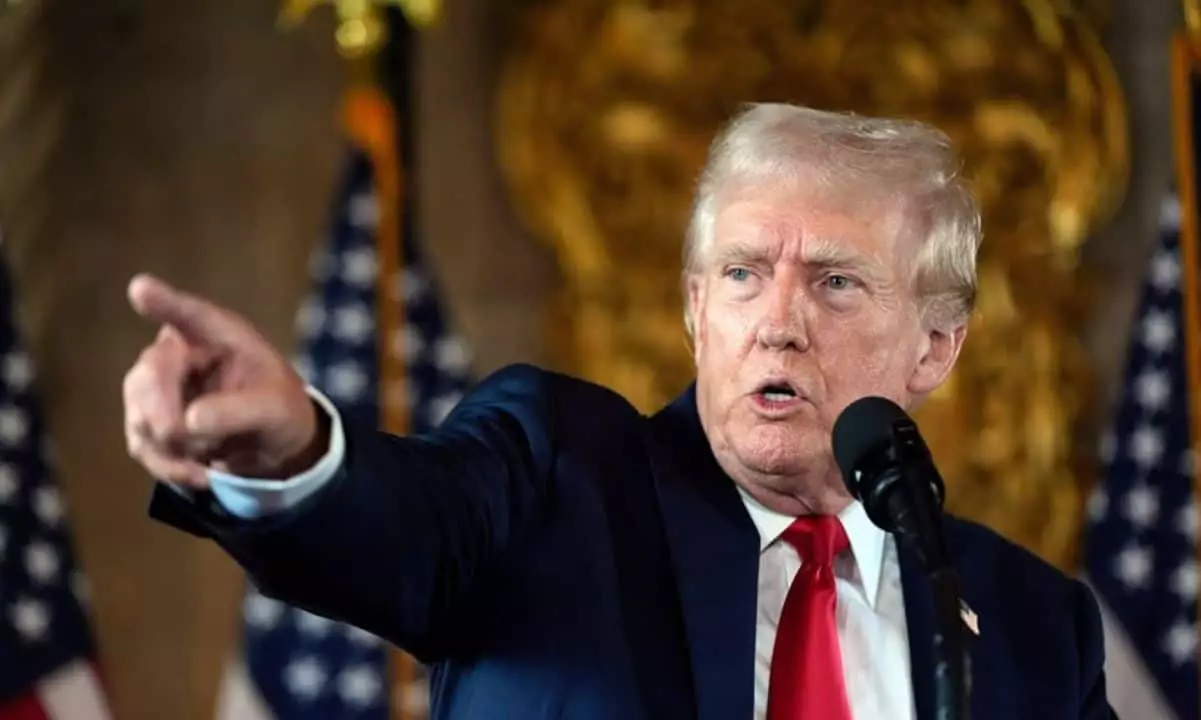In a world where the lines between politics, business, and the burgeoning cryptocurrency landscape have blurred significantly, the recent dinner hosted at President Donald Trump’s Virginia golf club serves as a glaring example of ethical degradation at the highest levels. This gathering, exclusive to the elite 220 holders of the TRUMP meme coin, was more than a mere dinner; it was an extravagant display of wealth and influence that has raised profound concerns over foreign interference in American politics. The audacity of charging attendees—a staggering total of $394 million—just to rub shoulders with the president reflects a troubling commodification of political access. Such events underline a disturbing precedent, positing that financial barrier and privilege can effectively buy an audience with the highest office in the land.
The Crypto Elite Showdown
Among the glittering guests was Justin Sun, a prominent figure in the cryptocurrency space and founder of Tron, who has touted his $18.5 million stake in TRUMP tokens as a badge of honor. The spectacle of a self-styled crypto elite mingling with a sitting president reveals an unsettling dimension of political fundraising where influence flows not only through traditional channels but also through speculative digital assets. While the event billed itself as a celebration of Trump’s unique brand of leadership, it emerged as more of an “orgy of corruption,” as aptly described by Senator Elizabeth Warren. This melding of politics and personal financial interests distorts democratic values, raising valid alarms about the potential for foreign actors exploiting our liberal democratic processes.
A Gateway to Foreign Influence
What stands out as particularly alarming is the data suggesting that more than half of the attendees may not be American citizens. Many of the tokens fueling this high-stakes event reportedly came from offshore exchanges that intentionally exclude U.S. participants. This blatant circumvention of American laws governing campaign finance is not merely an academic concern—it poses a direct threat to the integrity of our electoral system. With recent discussions revolving around the emoluments clause, lawmakers such as Maxine Waters and Richard Blumenthal have raised the stakes, demanding an investigation into what they perceive as a blatant violation of constitutional safeguards.
The Fallacy of Patriotism
The declaration by the White House that Trump attended in a personal capacity does little to assuage concerns. The very optics of the president, standing before a lectern emblazoned with the presidential seal, reinforce the notion that the lines separating personal enrichment from public duty are all but nonexistent. One wonders how genuine this “personal capacity” claim is when the president capitalizes on the gravitas of his office to endorse a currency that primarily caters to the wealthy elite. By suggesting a national Bitcoin reserve without concrete policy measures, Trump’s actions resonate more like hollow political theater than a transformative economic strategy.
The Aftermath: Rising Voices of Dissent
Public outcry, characterized by protests outside the venue with signs reading “Crypto corruption” and “America is not for sale,” indicates a growing unease among citizens disillusioned by the intersection of wealth and influence. The backlash is not without consequence; calls for transparency are now echoing through Congress, alongside legislative initiatives, such as the “Stop TRUMP in Crypto Act.” As outlandish as they may seem, these moves reflect a critical shift in how citizens from across the political spectrum are beginning to scrutinize the nexus of technology, finance, and governance more than ever before.
A Call for a New Political Epoch
The rise of cryptocurrency and related technologies should ideally signal a more democratic approach to finance; however, instances like this are painting a narrative of exclusion and privilege. The current trajectory towards oligarchical access to political influence demands urgent redress. An entire generation of Americans—those who will someday hold the reins of power—must come to terms with a reality where their democratic ideals are challenged by the venal behaviors of those at the top. The stakes could not be higher: as we navigate through this complex digital age, failure to recalibrate our ethical compass will lead us down a perilous path of corruption and disenfranchisement.















